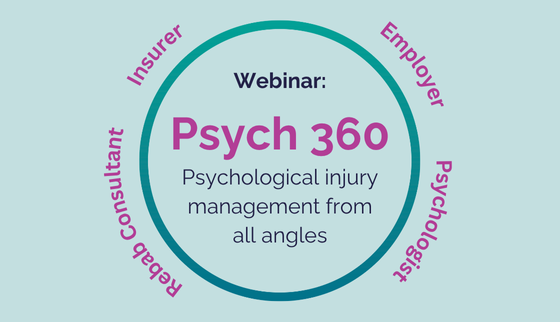Between Father’s Day and RU OK? Day, September is a good month for dads everywhere to remember to take care of your mental health.
We know you’re juggling a lot—work, family, and everything in between.
But amidst the chaos, it’s crucial to remember to take care of yourself.
Not only for your own wellbeing but also for the happiness and stability of your family.
This month’s Mentally Minded looks at why maintaining mental health is so important for fathers and how you can make it a priority.
Dads and postnatal depression
Recent research from the Parenting Research Centre reveals that one in five Australian fathers have experienced symptoms of depression and/or anxiety since having children.
This includes nearly one in ten dads who report experiencing postnatal depression.
The transition to fatherhood and the early years of childrearing are periods when men are at a substantially increased risk of experiencing psychological distress.

Why mental health matters
Your mental health impacts every aspect of your life.
When you’re feeling good mentally, you’re more likely to be engaged and present with your family, perform better at work, and enjoy your hobbies and interests.
On the flip side, poor mental health can lead to a range of issues, including strained relationships, decreased work performance, and even physical health problems.
The ripple effect on families
Your mental health doesn’t just affect you—it has a significant impact on your family.
Studies have shown that children of fathers with mental health issues are more likely to experience emotional and behavioural problems.
Moreover, fathers with mental health challenges often show lower levels of parental engagement, warmth, and appropriate monitoring, which can affect their children’s development.

The impact on young children
The early years of a child’s life are critical for their emotional and psychological development.
Fathers who experience mental health issues can inadvertently affect their children’s wellbeing in several ways:
Emotional and behavioural problems
Children of fathers with mental health issues are more likely to exhibit internalising problems (such as anxiety and depression) and externalising problems (such as aggression and hyperactivity).
This can be attributed to the reduced emotional availability and inconsistent parenting practices that often accompany mental health struggles.
Cognitive development
Research indicates that children with fathers who are mentally healthy tend to have better cognitive outcomes.
This includes improved language skills, problem-solving abilities, and school performance.
Conversely, children whose fathers struggle with mental health issues may face challenges in these areas due to less stimulating and supportive home environments.
Social skills
Fathers play a crucial role in the development of their children’s social skills.
A father’s mental health can influence how they interact with their children, which in turn affects the children’s ability to form healthy relationships with other kids and adults.
Supportive and engaged fathers help foster better social skills in their children.
Parental engagement
Fathers with mental health issues may find it hard to engage in positive parenting behaviours, such as playing, reading, and providing emotional support.
This lack of engagement can hinder a child’s emotional security and attachment, which are vital for healthy development.

Balancing work and family
Fathers today are often expected to fulfil the traditional role of ‘breadwinner’ while also taking a more active role in childcare.
These competing demands can create work-family conflicts, which can pile on your mental health struggles.
It’s important to find a balance that works for you and your family.
This might mean setting boundaries at work, sharing responsibilities at home, or as hard as it may feel, asking for help when needed.
Simple tips to stay mentally strong
1. Stay connected
Don’t isolate yourself. Stay connected with friends, family, and other dads.
Sharing your experiences and challenges can be incredibly therapeutic.
2. Exercise regularly
Physical activity is a great way to boost your mood and reduce stress.
Even a short daily walk can make a big difference.
3. Seek professional help
If you’re struggling, don’t hesitate to seek help from a mental health professional.
Think of your mind like your dream car, you want a qualified mechanic working on it, and you want it to be safe and strong for you and your kids.
4. Practise mindfulness
Techniques like meditation and deep breathing can help you stay grounded and manage stress.
5. Prioritise self-care
Make time for activities that you enjoy and that help you relax.
Whether it’s reading, gardening, or playing a sport, self-care is essential.

Be a mental health champion
It’s also important to encourage other fathers to check in on their mental health.
Start conversations about mental health with your friends and family.
Share resources and support each other.
By being open and supportive, we can help reduce the stigma around mental health and ensure that more fathers get the help they need.
While being useful and helping other people, has huge positive benefits to your own mental health.
Resources
There are many resources available to support you in maintaining your mental health.
Here are a few to get you started:
- Beyond Blue: Offers information and support to help everyone in Australia achieve their best possible mental health.
- PANDA: Provides support for parents experiencing anxiety and depression during pregnancy and early parenthood.
- MensLine Australia: A telephone and online counselling service for men with emotional health and relationship concerns.
Maintaining your mental health is not just about avoiding illness—it’s about thriving and being the best version of yourself for your family, your work, and your own happiness.
So, take a moment to check in with yourself.
How are you really doing?
And if you know a dad who might be struggling, reach out and offer your support.
Remember, taking care of your mental health is a sign of strength, not weakness.
Sources
- Fathers and child mental health – mhfi.org
- Fatherhood and mental illness – Australian Institute of Family Studies
- Fatherhood: the impact of fathers on children’s mental health – mhfi.org
- Fathers’ mental health and parenting: implications for promoting children’s mental health – Emerging Minds
- Conflicts between work and family and fathers’ mental health – Australian Institute of Family Studies




